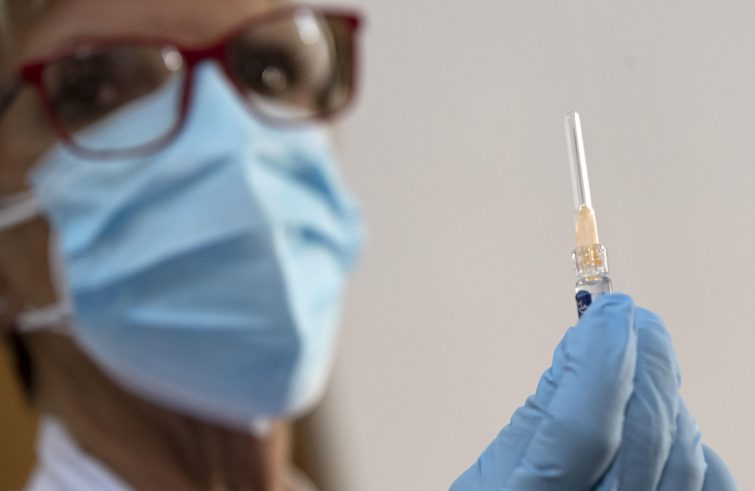
It’s not a race but expectations are mounting along with the hopes. According to Prime Minister Giuseppe Conte, the first doses of the Oxford-Irbm Pomezia-Astrazeneca vaccine could be available in December. The announcement rekindled widespread optimism. “It’s good news”, said Doctor Francesco Vaia, epidemiologist and medical director of the Lazzaro Spallanzani Health Institute in Rome.
The virus can be combated either via herd immunity, which is a long way off, or with the vaccine. For us it’s important for the vaccine to be effective and safe.
What is certain is that things will not go back to normal in the short term. “We have to hope – the Professor remarked – that there will be enough vaccines for the world’s population. This is a promising start but we will need millions of doses.”
The Spallanzani Institute is also working on the development of a vaccine. In fact phase 1 clinical trials began in August. “The first findings – Vaia said – will be evaluated at the end of October, and the timeframe will be based on the results. It’s not a competition. Our hope is to complete phase 2 and 3 by next Spring.
Especially if the vaccine is safe and effective it must be made available to all, as Pope Francis said: for the common good.
As for the treatment of infected patients, a few days ago the World Health Organization published the results of four treatments used so far (remdesivir, hydroxychloroquine, interferon, lopinavir combined with ritonavir) and found them poorly effective. It should be said, however, that the WHO study is yet to be peer-reviewed, but in the meantime the report was received with some concern, since remdesivir, especially, has been used extensively. The drug was included in the treatment protocols also at Spallanzani. “We receive this information from the WHO with great respect – Vaia observed – we registered positive results. These drugs followed a tortuous path. The findings will be further investigated by the scientific community.”
The situation at Spallanzani today is similar to that of other hospitals dedicated entirely to Covid-19 care.
“We increased our capacity fourfold both in ordinary and intensive care. It will be necessary to monitor the situation at territorial level. NHS must strengthen family medicine and provide home care. The next challenge will be to ensure home treatment and prevent hospital overcrowding, which precludes the treatment of other illnesses.
We must find a balance, hospitals cannot only treat Covid patients.
In the Lazio region, efforts are geared at creating dedicated hospitals as part of a network of facilities to treat other pathologies.” This adds on to the evidence resulting from numerous tests carried out over the past weeks: “After analyzing thousands of antigen tests in Drive-through Coronavirus PCR Test Facilities, schools, and airport, Spallanzani verified that above a cut-off index of 10, there is no need for a second confirmatory swab. This will allow to decrease congestion at drive-through testing facilities.”
What is the best way to avoid a new lockdown?
“Citizens must actively participate”, he replied, “and the state system must not only focus on health care, but also on other sectors.” “My idea is not to shut anything down but to increase flexibility. I am against forceful action – he pointed out -. I have more faith in persuasion. If retail stores opening hours are extended, customer inflows will be better distributed.”
Also for transport, the Spallanzani medical director has a suggestion:
“Why not ask private companies, such as tourist buses, that are not running for most of the time, to collaborate with public transport, together with the military? It would support a service currently lacking in means and avoid overcrowding”.












